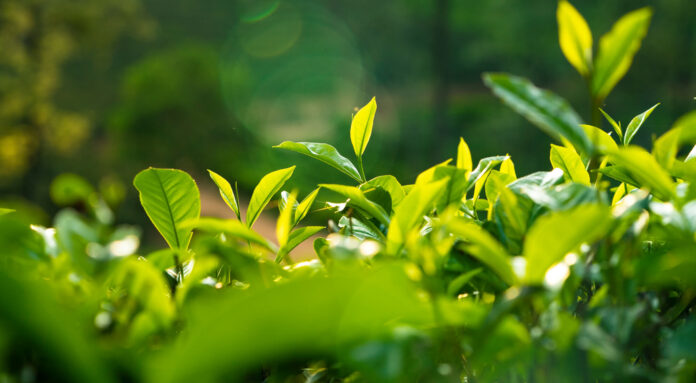Sri Lanka’s tea industry is showing signs of resilience amid rising global trade tensions, but looming U.S. tariffs threaten to undermine its export momentum, particularly in value-added segments.
As the United States mulls broader import duties on select Sri Lankan goods, the country’s flagship tea industry—which relies heavily on premium exports to Western markets—could face major headwinds, industry analysts warn.
The impact could be felt most in value-added tea products like packets and bags, which fetch higher margins and now form a critical component of Sri Lanka’s export basket.
Despite these concerns, Sri Lanka recorded its strongest tea export performance in four years during the first half of 2025, underpinned by robust demand and increased shipments to non-traditional markets.
According to Customs data analysed by Asia Siyaka Research, tea exports reached 126.8 million kilograms (Mnkg) in the first six months, up 6% from 119.1 Mnkg in 2024. Export earnings surged to $743 million, the highest for a first half since 2014, when exports stood at 157 Mnkg generating $805 million.
A notable shift in export strategy is evident in the product mix. The average Free on Board (FOB) price per kilogram rose to $5.87, up from $5.77 a year earlier, largely due to a continued emphasis on value addition.
Value-added tea now comprises 59% of total shipments. Packeted tea exports rose significantly to 46% of overall exports, up from 39%, while bulk tea dropped from 47% to 41%.
Tea bags remained stable at 10%, though volumes increased to 12.5 Mnkg, a 2% year-on-year gain. Meanwhile, instant tea saw the highest growth rate—23%, reaching 1.6 Mnkg.
In terms of destinations, Iraq retained its top spot with imports jumping 28% to 18.7 Mnkg. Libya emerged as a surprise performer, recording a 280% surge to 11.4 Mnkg, compared to just 3 Mnkg last year.
However, Russia, once a dominant buyer, slipped to third place, importing 11.2 Mnkg, down from 13 Mnkg.
These export successes come despite climatic challenges that hit tea production in June, showcasing the industry’s adaptability. But stakeholders caution that the progress may be short-lived if Sri Lanka loses access to tariff concessions, particularly in Western markets where value-added teas are popular.
As trade talks with the U.S. continue, the tea industry is watching closely. Any tightening of market access could compel producers to return to bulk exports, weakening profitability and undercutting the government’s push toward a higher-value export model.
